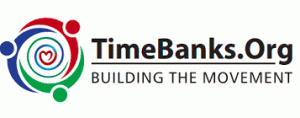Reflection by Edgar Cahn
The potential of TimeBanking as a form of disaster preparedness and response first surfaced in August 1992, when Hurricane Andrew hit the southern tip of Florida, wreaking havoc on what was then an unprecedented scale. Southern Miami was the home of what was then the largest TimeBanking program, founded in 1987. The TimeBank membership responded to the devastation before the National Guard and the Red Cross — providing guidance to the teams that landed that did not know the terrain. Everyone was enlisted sorting clothes, delivering food and water. Prostitutes who descended were told, “You work for us during the day; you can work for yourself at night.” In 1993, the total of service credits earned exceeded over 150,000 time credits, providing sustained relief for hurricane victims. By 1994, more than three thousand members were earning over 12,500 credits per month.
Lessons from Hurricane Andrew seemed to have been forgotten when it came to Katrina. Now they are being remembered in the wake of Hurricane Sandy, the second-costliest hurricane in United States history. But a new report, coming from New Zealand on the role of the Lyttelton TimeBank as the builder and mobiliser of resources during the Earthquakes is going the rounds in FEMA. Disaster preparedness specialists are discovering that TimeBanking might just be a uniquely inexpensive and powerful form of disaster preparedness.
The Report provides a valuable step-by-step process which incorporates TimeBanks as partners in emergency planning and management:
- Map the Community ———- Document Existing Assets and Vulnerabilities
- Practice Team Work ———- Promote Engagement in Community Enhancement Projects
- Shout it Out ——————— Build Redundant Local Communications Systems
- Plan Locally ——————— Leverage Local Expertise to Organize Strategically
With global warming, one thing is predictable. Life will become more unpredictable.
This is what we call preparedness. It has to be put in place before disaster strikes. And it has to be maintained. In time, TimeBanks could well become a standard for what every community does.

